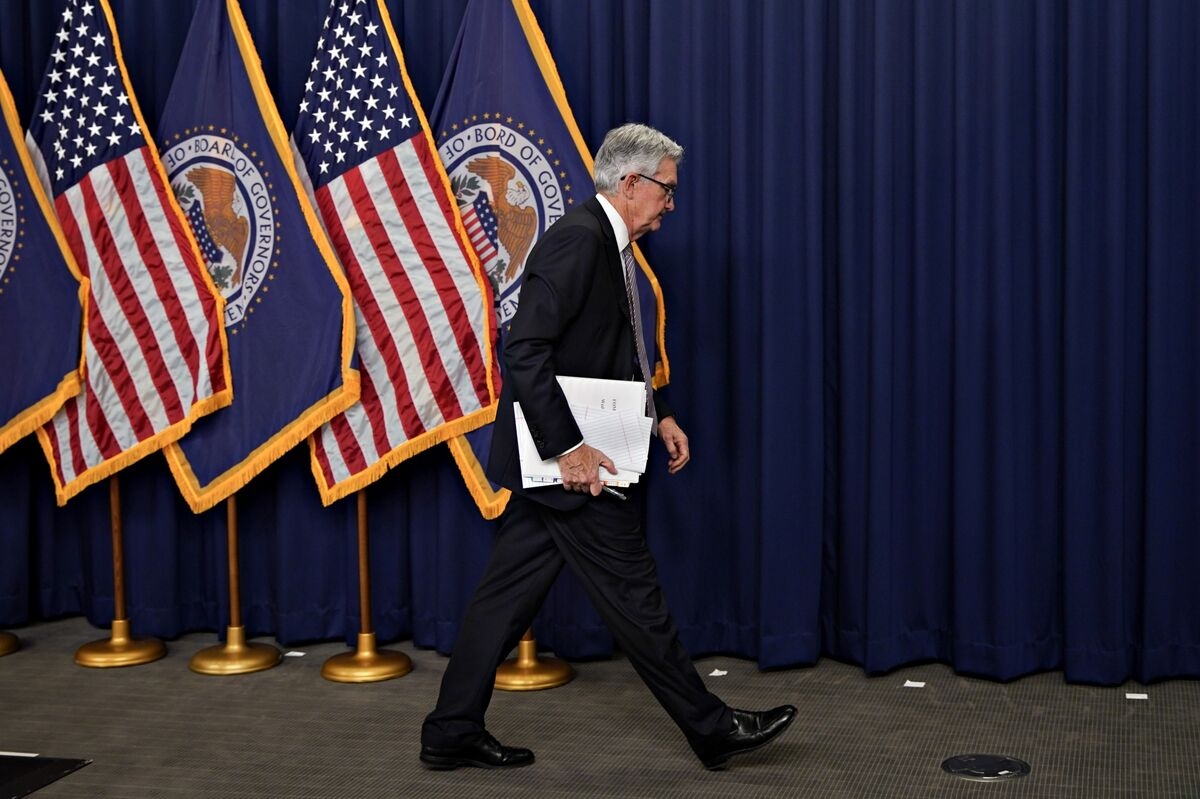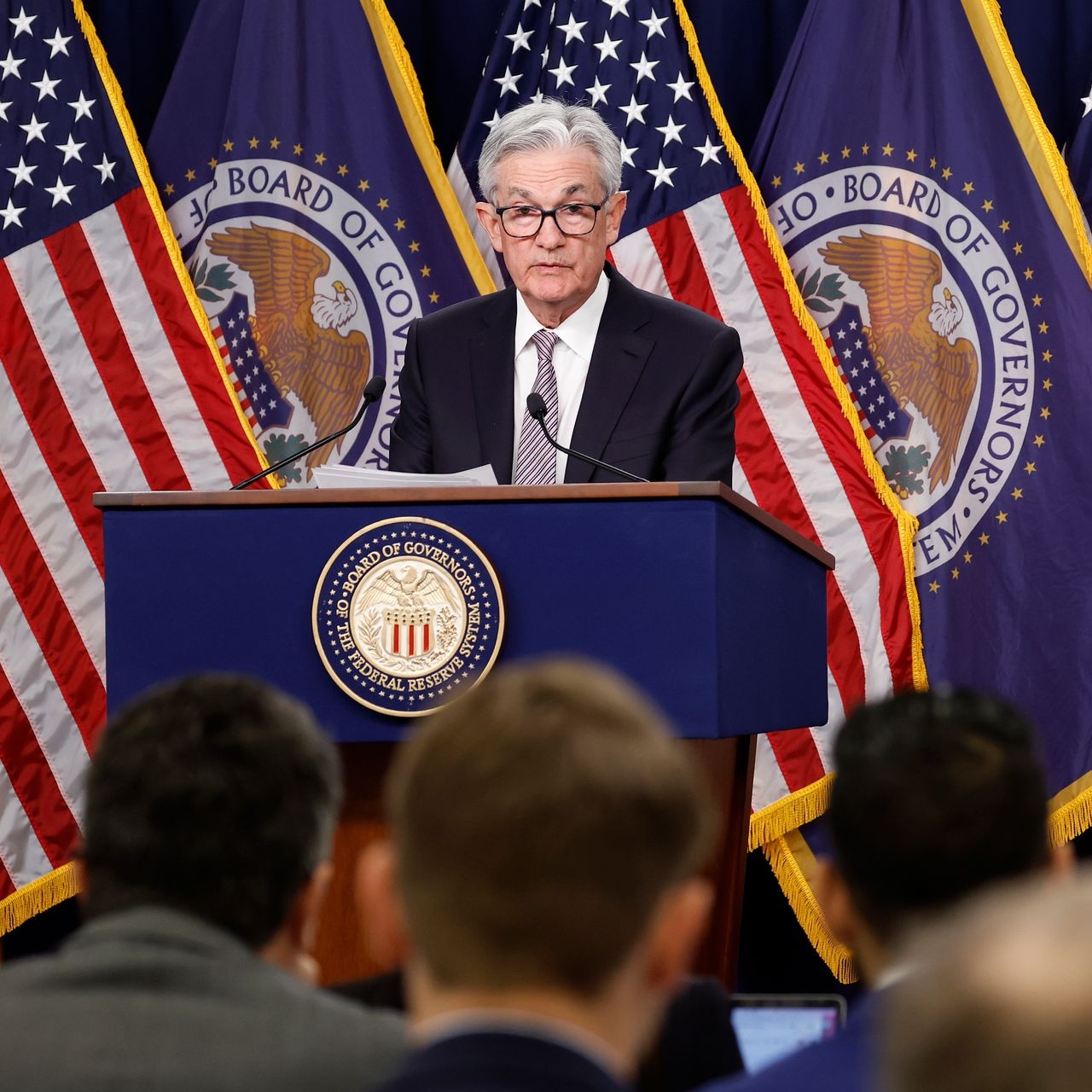The American public’s faith in Federal Reserve Chair Jerome Powell is dwindling, as reflected by a recent Gallup survey that shows only 36% of Americans express confidence in Powell’s handling of the economy. This rating, the lowest during Powell’s six-year tenure and the lowest for any Fed chair since Gallup began collecting data in 2001, raises concerns for the health of the US economy.
Approximately 28% of Americans express almost no confidence in Powell, who was initially nominated by former President Donald Trump. This loss of trust poses significant challenges for the Federal Reserve, which relies on public faith to maintain its image as a reliable, apolitical institution capable of effective policymaking.
The credibility of the Federal Reserve is paramount for the smooth functioning of the economy. For instance, when Powell asserts that the Fed will work to reduce historically high inflation rates, public faith in his promise can lead to changes in consumer behavior that help fulfill that prophecy. However, the recent erosion in Powell’s credibility threatens this dynamic.
Fed officials have previously acknowledged that their credibility and effective communication have contributed to a significant tightening of financial conditions, thereby reducing inflation pressures. With recent developments in the banking sector demanding even more dependability, the need for the Fed to maintain public trust is more crucial than ever.
Brian Rehling, head of global fixed-income strategy for Wells Fargo Investment Institute, points out that a broader loss of confidence in the Fed’s ability to achieve its objectives could influence consumer habits over time. This could further complicate the Fed’s efforts to manage economic conditions.
However, public perception doesn’t always align with reality. The Federal Reserve, despite the best efforts of its economists, is vulnerable to unpredictable economic fluctuations. This vulnerability is reflected in the growing public concern about the economy and the performance of key government officials responsible for economic policy.
In an attempt to curb inflation, the Fed has raised interest rates 10 times in just over a year. While this move has dampened the economy, it has also started to ease inflation rates. Still, inflation remains significantly higher than the Fed’s 2% target.
According to Vincent Reinhart, chief economist at Dreyfus and Mellon, the very fact that the American public knows who Powell is signals a problem. Ideally, he argues, the Fed should be operating quietly in the background, with Americans largely unaware of inflation.

While public criticism of Powell comes with his position, Reinhart cautions that if the public stops believing in Powell’s messages, the implications could be serious. Despite the current lack of confidence, the American public seems to believe that Powell will follow through on his promises. For instance, the Fed has signaled a likely pause in rate hikes at its next meeting, and the markets have priced in a more-than 90% chance of this happening.
However, to sustain confidence, Rehling suggests that the Fed needs to ensure that it can achieve its 2% inflation target before easing policy. Consequently, the Fed is expected to maintain elevated rates for the foreseeable future and could even raise them further if inflation proves stubborn.
The next significant test for the Fed’s credibility will be its oversight of the banking industry. Reinhart points out that if the Fed makes a mistake in its peripheral missions, such as banking oversight, it could damage its core competency. This underscores the importance of separating supervision and monetary policy.
Inflation is gradually moderating, with annual inflation dropping last month to its lowest level since April 2021. However, despite this slowdown, it will take several more months before we start to see significant relief on the inflation front, according to Ryan Sweet, chief US economist for Oxford Economics.
In other news, Google is planning to revamp its search engine with AI chat features to stay competitive in the face of emerging artificial intelligence tools. The update will transform Google Search’s user experience, integrating an AI-powered chatbot to respond to queries, a task previously thought beyond the capabilities of Search. This innovation aims to deliver information more swiftly to users.
The introduction of this next evolution of Google Search will result in a markedly different look and feel for search results. When users input a query into the primary search bar, a pop-up with an AI-generated response will appear alongside traditional results. This interaction mimics a chat interface and signifies a step towards a more interactive, conversational experience with the search engine.
Users are invited to join a waitlist for the new Google Search, which will initially launch in the United States, accessible via the Google app or Chrome’s desktop browser. The company plans to gradually roll out access to a limited number of users in the coming weeks.
This integration of AI technology into Google Search is a strategic move to maintain Google’s dominance in the online space amid the rise of advanced AI tools that could potentially threaten its market share. It’s a significant development that highlights Google’s continued focus on leveraging AI to enhance its services and stay ahead of the competition.
The impact of these changes extends beyond the immediate user experience. By transforming the way users interact with its search engine, Google is setting new standards for search technology and pushing the boundaries of AI’s role in day-to-day digital interactions.
This move also signals a shift in Google’s approach to information delivery. The integration of AI chat features suggests a more personalized, user-focused experience, moving away from the conventional, one-size-fits-all list of search results. The conversational AI chatbot is designed to better understand and cater to individual user needs, which could lead to improved user satisfaction and continued loyalty to Google’s platform.
However, the integration of AI into Google Search also raises questions about data privacy and the potential misuse of AI technology. As users interact more intimately with AI tools, the amount of personal data shared increases, potentially raising security concerns. It will be crucial for Google to address these concerns and ensure robust data protection measures are in place as they roll out these new features.
As we move forward, the success of this new Google Search experience will depend not only on its technological proficiency but also on Google’s ability to address these privacy concerns and maintain user trust. Only time will tell how these developments will reshape our interaction with the internet and redefine the future of online search.
©world-news.biz
